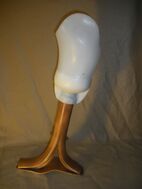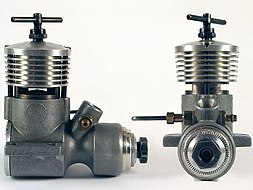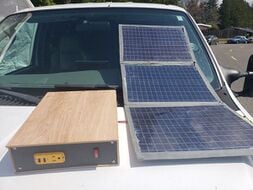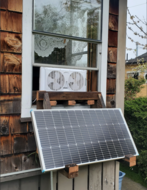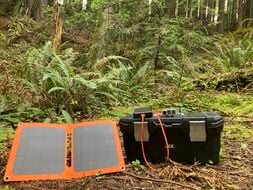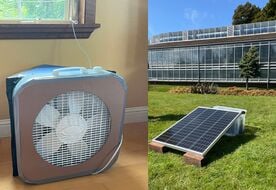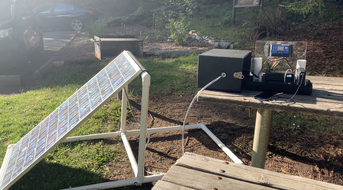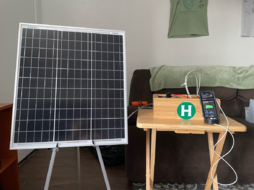No edit summary |
|||
| (28 intermediate revisions by the same user not shown) | |||
| Line 10: | Line 10: | ||
==Abstract== | ==Abstract== | ||
There is a pretty simple idea behind this OSAT project and concept is straight forward. A simple snap system that can be used in multiple ways. Something like a snap system might not seem like much but think of the idea when you don't have retail outlets close to you. Snaps can be used in a variety of ways; shirts, coats, satchels or bags, or any other system that would be desired to hold together. This simple idea of a snap system and the varities of of uses make this an aopporiate OSAT project. This snap system can be | There is a pretty simple idea behind this OSAT project and concept is straight forward. A simple snap system that can be used in multiple ways. Something like a snap system might not seem like much but think of the idea when you don't have retail outlets close to you. Snaps can be used in a variety of ways; shirts, coats, satchels or bags, or any other system that would be desired to hold together. This simple idea of a snap system and the varities of of uses make this an aopporiate OSAT project. This snap system can be ultered to be size appropriate for the job it is needed for. This design is based off of a sew in style, has holes to be attached by sewing, and has a peg system similar to that of legos. This style is simple b ut effective and doesn't need large forces to manipulate them but strong enough to hold together. | ||
# | Design recap | ||
# Two peice stsyem utilizing male and female mating system | |||
# Male peice has the peg system | |||
# Female has the hole system | |||
# Sew in style installation | |||
# Easy to snap but snap holds strong | |||
# Simple, clean, effective | |||
{{Gallery | |||
|title=Low force snaps | |||
|Image:compar2.jpg|Comparison of two sizes | |||
|Image:larger1.jpg|40mm snap | |||
|Image:smaller1.jpg|30mm snap | |||
}} | |||
== Bill of Materials== | == Bill of Materials== | ||
| Line 19: | Line 32: | ||
#PLA filiment | #PLA filiment | ||
*[[File:snap_4.stl]] | |||
*[[File:femalesnap_4.stl]] | |||
*[[File:snap.scad]] | |||
*[[File:femalesnap.scad]] | |||
== Tools needed for fabrication of the OSAT== | == Tools needed for fabrication of the OSAT== | ||
| Line 27: | Line 42: | ||
== Skills and Knowledge Necessary to Make the OSAT == | == Skills and Knowledge Necessary to Make the OSAT == | ||
* | * Basic knowledge of your 3-D printer and software used to make the model | ||
== Technical Specifications and Assembly Instructions== | == Technical Specifications and Assembly Instructions== | ||
# | #Download the files listed above | ||
# | #Prep your printer and load the .stl file and slice into a .gcode file | ||
#Print snaps, clean, and get ready of installation | |||
# | #Once the snap system is printed, attach to desired surface using any sort of string, yarn,thread, or any other material that can be used in a sewing fashion. Once the snaps are attached to their designated postions, snap together. | ||
* Print time will vary on size of snaps | |||
Original file: 21 minutes | |||
.75 Scale: 5 minutes | |||
* Assembly time we be the amount of time it takes to sew into place | |||
Approximatly 2 minutes | |||
=== Common Problems and Solutions=== | === Common Problems and Solutions=== | ||
* | Mating together | ||
* The peg length is important to ensure that the two paices stay mated together | |||
* The pegs on the male piece and the holes in the female piece need to have the correct allowance to they are easy enough to snap together but able to stay snapped together | |||
== Cost savings== | == Cost savings== | ||
* | Estimate your costs | ||
# | # 40mm snap set | ||
* 3117mm of filament approximately 35 minutes | |||
* $0.28 per set | |||
# 30mm snap set (30mm) | |||
* 1539mm of fillament approximately 18 minutes | |||
* $0.14 per set | |||
Find a commercial equivalent | |||
4 piece snaps 30mm sew on snaps $3.64/per set | |||
http://www.amazon.com/Dritz-Sew-On-Snaps-30-Mm-Black/dp/B0016ZZRYM/ref=pd_sim_ac_5?ie=UTF8&refRID=01DAP2P4NDWQ13XDGYE2 | |||
* 40mm set = 92.31% savings | |||
* 30mm set = 96.15% savings | |||
==References== | ==References== | ||
# My own knowlegde of snaps and design concept | |||
# http://www.amazon.com/Dritz-Sew-On-Snaps-30-Mm-Black/dp/B0016ZZRYM/ref=pd_sim_ac_5?ie=UTF8&refRID=01DAP2P4NDWQ13XDGYE2 | |||
# http://www.toybuilderlabs.com/blogs/news/13053117-filament-volume-and-length | |||
# http://zenikinetic.com/filament/ | |||
[[Category:How tos]] | [[Category:How tos]] | ||
[[Category:fittings]] | [[Category:fittings]] | ||
[[Category:3D printing]] | |||
[[Category:OSAT 3D-Printable Designs]] | |||
Revision as of 14:40, 4 December 2014
Low force snaps
Project developed by Jacob Gerdt
Template:Statusboxtop Template:Status-design Template:Status-prototype You can help Appropedia by contributing to the next step in this OSAT's status. Template:Boxbottom
Abstract
There is a pretty simple idea behind this OSAT project and concept is straight forward. A simple snap system that can be used in multiple ways. Something like a snap system might not seem like much but think of the idea when you don't have retail outlets close to you. Snaps can be used in a variety of ways; shirts, coats, satchels or bags, or any other system that would be desired to hold together. This simple idea of a snap system and the varities of of uses make this an aopporiate OSAT project. This snap system can be ultered to be size appropriate for the job it is needed for. This design is based off of a sew in style, has holes to be attached by sewing, and has a peg system similar to that of legos. This style is simple b ut effective and doesn't need large forces to manipulate them but strong enough to hold together.
Design recap
- Two peice stsyem utilizing male and female mating system
- Male peice has the peg system
- Female has the hole system
- Sew in style installation
- Easy to snap but snap holds strong
- Simple, clean, effective
Bill of Materials
- 3-D printer
- OpenScad
- PLA filiment
Tools needed for fabrication of the OSAT
- MOST Delta RepRap or similar RepRap 3-D printer
- OpenScad or other Cad software http://www.openscad.org/
Skills and Knowledge Necessary to Make the OSAT
- Basic knowledge of your 3-D printer and software used to make the model
Technical Specifications and Assembly Instructions
- Download the files listed above
- Prep your printer and load the .stl file and slice into a .gcode file
- Print snaps, clean, and get ready of installation
- Once the snap system is printed, attach to desired surface using any sort of string, yarn,thread, or any other material that can be used in a sewing fashion. Once the snaps are attached to their designated postions, snap together.
- Print time will vary on size of snaps
Original file: 21 minutes .75 Scale: 5 minutes
- Assembly time we be the amount of time it takes to sew into place
Approximatly 2 minutes
Common Problems and Solutions
Mating together
- The peg length is important to ensure that the two paices stay mated together
- The pegs on the male piece and the holes in the female piece need to have the correct allowance to they are easy enough to snap together but able to stay snapped together
Cost savings
Estimate your costs
- 40mm snap set
- 3117mm of filament approximately 35 minutes
- $0.28 per set
- 30mm snap set (30mm)
- 1539mm of fillament approximately 18 minutes
- $0.14 per set
Find a commercial equivalent 4 piece snaps 30mm sew on snaps $3.64/per set http://www.amazon.com/Dritz-Sew-On-Snaps-30-Mm-Black/dp/B0016ZZRYM/ref=pd_sim_ac_5?ie=UTF8&refRID=01DAP2P4NDWQ13XDGYE2
- 40mm set = 92.31% savings
- 30mm set = 96.15% savings




